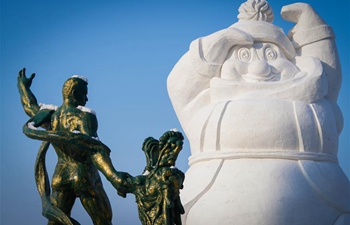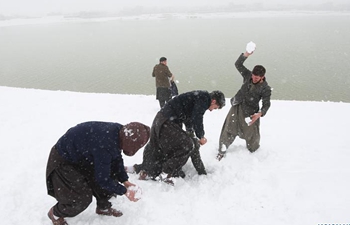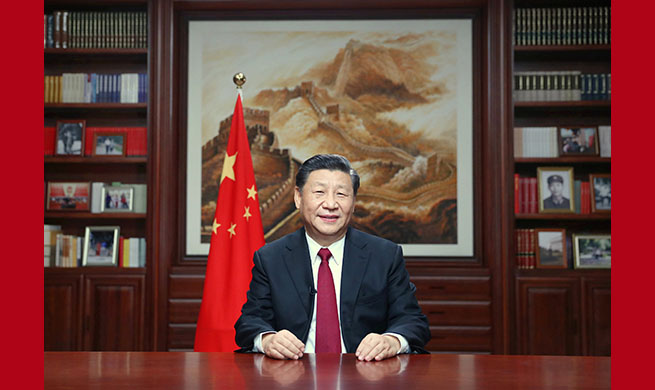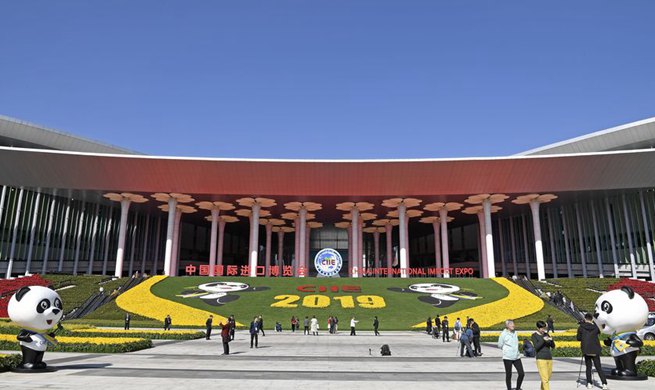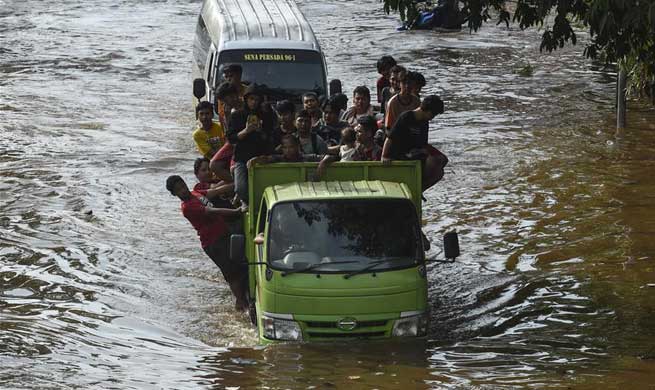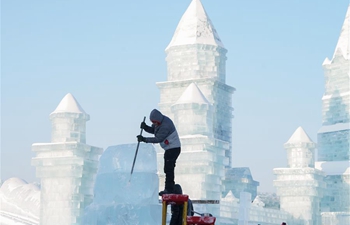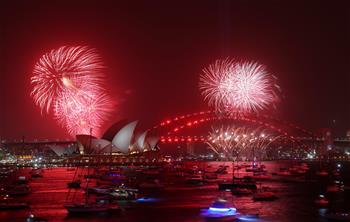TEHRAN/BAGHDAD, Jan. 3 (Xinhua) -- The tension between Iran and the United States has dramatically escalated following the killing of a senior Iranian commander in a U.S. airstrike on Friday in Iraq's capital of Baghdad.
Iran's Islamic Revolution Guards Corps (IRGC) on Friday confirmed the killing of Qassem Soleimani, commander of the Quds Force of the IRGC, in an airstrike on Baghdad's international airport by U.S. helicopters in the early morning.
Meanwhile, the U.S. Defense Department announced it conducted the attack under President Donald Trump's direction as a "defensive action" against Soleimani, who it said was planning further attacks on U.S. diplomats and service members in Iraq.
IRAN VOWS TO REVENGE
Iranian senior officials on Friday strongly condemned the assassination of Soleimani, while vowing to take revenge.
Iran's Supreme Leader Ayatollah Ali Khamenei said in a statement that those who assassinated Soleimani should wait for Iran's severe response, state TV reported.
Khamenei said that the mission of Soleimani and "resistance" will not stop by his death.
All should know that "the resistance movement will continue more strongly, and a definite victory awaits those who fight in this auspicious path," he said.
Iranian President Hassan Rouhani echoed the remarks by the Iranian supreme leader, saying that the campaign against terrorism and radicalism in the region will continue "even determinedly" after Soleimani's death.
"With no doubt, the Iranians will take revenge for this horrible crime," Rouhani tweeted.
Iranian Foreign Minister Mohammad Javad Zarif also strongly condemned the U.S. for assassinating Soleimani, saying Iran will "hold the criminal and terrorist regime of the United States accountable for this blatant crime," according to Press TV.
"The malice and stupidity of the terrorist American forces in assassinating General Soleimani, the hero and commander of fight against terrorism and extremism, will undoubtedly make stronger the tree of resistance in the region and the world," Zarif was quoted as saying.Mohsen Rezaei, the former commander of the IRGC, on Friday vowed "vigorous revenge" on the U.S. for killing Soleimani.
ESCALATING IRAN-U.S. TENSION
The long-time conflict between Iran and the U.S. has sharply escalated in the past days after angry Iraqi protesters stormed the U.S. embassy compound in Baghdad on Tuesday to protest the U.S. air raids conducted on Sunday against five bases of Iran-backed militias in Iraq and Syria.
The U.S. airstrikes were conducted to retaliate for the killing of an American contractor and wounding of several U.S. soldiers in a rocket attack last Friday on a military base housing U.S. troops in the Iraqi city of Kirkuk.
"Iran killed an American contractor, wounding many. We strongly responded, and always will. Now Iran is orchestrating an attack on the U.S. Embassy in Iraq. They will be held fully responsible," said Trump in a morning tweet, referring to the incident in which hundreds of Iraqi protesters stormed the U.S. embassy in Baghdad's Green Zone.
Some protesters smashed one of the gates and broke into the outer yards of the embassy, sparking a clash with the guards who fired tear gas to disperse them, an official from the Iraqi Interior Ministry told Xinhua on condition of anonymity.
U.S. forces on Sunday attacked five locations in Iraq and Syria controlled by Iraq's pro-Iran Kata'ib Hezbollah (KH), or Hezbollah Brigades, killing dozens of Hashd Shaabi fighters.
Hashd Shaabi, an Iraqi state-sponsored umbrella organization, was formed by the KH and other Shia Iraqi paramilitary groups in 2014. It currently includes more than 40 militant groups.
The protest prompted the U.S. to deploy about 750 troops immediately to the Middle East.
REGIONAL REACTIONS TO U.S. RAID IN BAGHDAD
In Friday's U.S. airstrike at Baghdad's international airport, Abu Mahdi al-Muhandis, deputy chief of Iraq's paramilitary Hashd Shaabi forces, was also killed.
The Hashd Shaabi media office said in a statement that al-Muhandis and Soleimani were killed in their vehicle on a main road near the airport.
Iraq's caretaker Prime Minister Adel Abdul Mahdi on Friday strongly condemned the U.S. attack, calling the assassination of al-Muhandis, an Iraqi military leader, as "an aggression against Iraq, its state, its government and its people."
Mahdi said that attack "is a flagrant violation of Iraqi sovereignty, a blatant attack on the dignity of the country and a dangerous escalation that ignites a destructive war in Iraq, the region and the world," he said in a statement.
He also considered he attack as "a flagrant violation of the conditions for the presence of U.S. forces in Iraq," stressing that its role is limited to training Iraqi forces and fighting Islamic State (IS) group within the international coalition forces and under the supervision and approval of the Iraqi government.
Mahdi called on Iraqi parliament to hold an extraordinary session to discuss taking the necessary legislative decisions that would preserve the dignity, security and sovereignty of Iraq, the statement added.
Syria's Foreign Ministry on Friday slammed the U.S. assassination of Soleimani as a "criminal, treacherous aggression," which "highlights again the responsibility of the U.S. for the destabilization of the region."
The ministry warned of "dangerous escalation" of the regional situation, while accusing the U.S. of igniting conflicts with the aim of enabling Israel to control the region.
The Palestinian left-wing faction, the Popular Front for the Liberation of Palestine, said in a statement that the murder of Soleimani is a "quantum leap in the American aggression and wars it wages in the region."
The Islamic Hamas movement, which controls the Palestinian enclave of Gaza Strip, also condemned "the ongoing American crimes that create tension in the region, which serves the criminal Israeli enemy."
"The United States of America is fully responsible for the bloodshed in the Arab region," Hamas said in a press statement.
Israel, which regards Iran as its arch enemy, has not officially responded to the killing of Soleimani immediately.
Israeli media reported that Israeli Prime Minister Benjamin Netanyahu ordered his cabinet ministers to make no comments on the assassination.
Israeli Defense Minister Naftali Bennett reportedly held a security assessment of the situation at the Israeli military headquarters in Tel Aviv.





